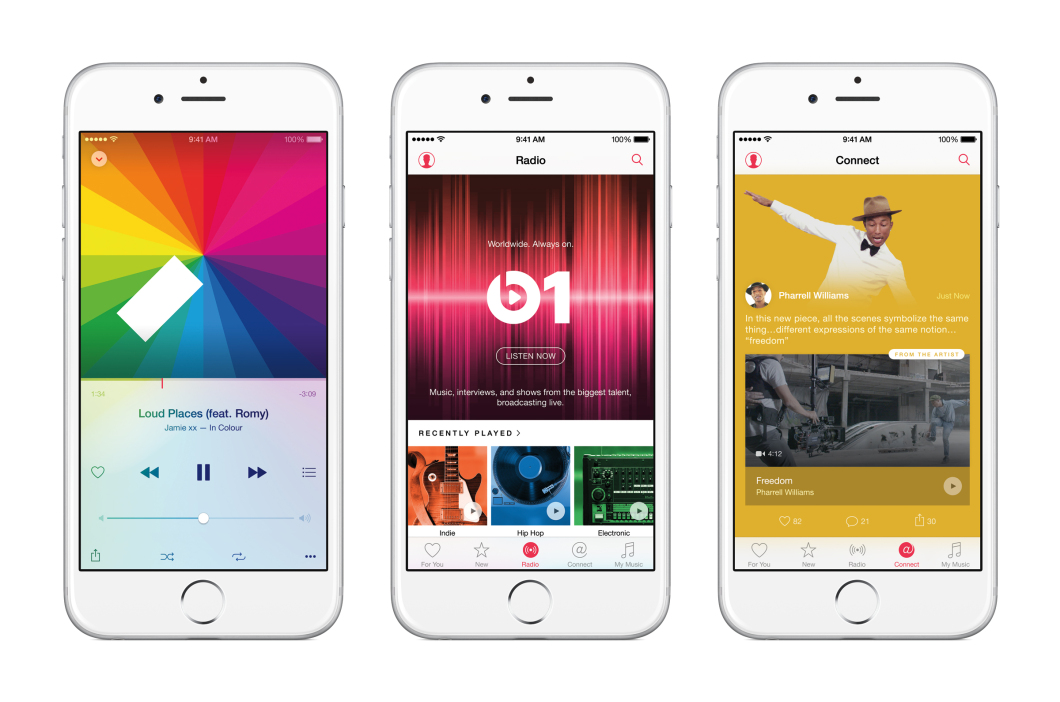Two States Probe Apple Music Over Antitrust Concerns
 When Apple moved into the e-book market several years ago, the company colluded with the country’s largest book publishers to fix prices and gain a foothold in the market. Now as Apple jumps into the subscription streaming music business, at least two states are asking whether the company may be repeating itself.
When Apple moved into the e-book market several years ago, the company colluded with the country’s largest book publishers to fix prices and gain a foothold in the market. Now as Apple jumps into the subscription streaming music business, at least two states are asking whether the company may be repeating itself.
The New York Times reports that the attorneys general for both New York and Connecticut have made inquiries about Apple’s negotiations with record labels to see if the company may have conspired to harm the business of competitors like Pandora or Spotify.
These services bring in huge piles of cash, some of it through advertising and some through subscriptions for ad-free premium access. Only about 20% of Pandora’s annual revenue comes from users who pay for the ad-free premium version of the service, but Spotify says that almost all of its $1.3 billion came through subscription fees, even though only about 25% of its users pay for the service.
Apple Music, which will only be available as a $10/month subscription service when it launches later this month, might benefit from making it more difficult or expensive for so-called “freemium” competitors to obtain content.
In a letter obtained by the Times, Universal Music Group states that it does not “currently have any agreements with Apple Inc. to impede the availability of third-party free or ad-supported music streaming services, or that limit, restrict, or prevent UMG from licensing its recorded music repertoire to any third-party music streaming service on any terms that UMG may choose. Nor does UMG intend to enter into any such agreements.”
The company says it has also not reached any deals with Sony or Warner Music that would, as a group, restrict availability of music to freemium services.
However, Universal acknowledges that it does “offer limited exclusive content to some music streaming services, ISPs, and/or wireless suppliers, and reserves the right to continue to offer limited content on an exclusive basis in the future,” so long as the exclusivity is based on a legitimate business decision and “not part of an agreement to restrain competition.”
The office of New York Attorney General Eric Schneiderman tells the Times that “It’s important to ensure that the market continues to develop free from collusion and other anticompetitive practices.”
In the e-book price-fixing case, federal prosecutors showed that Apple convinced book publishers to change their pricing models so that the publishers set the retail price rather than the sellers. This prevented any one seller from offering deep discounts to compete with Apple. It also resulted in consumers paying more for e-books on Amazon than they were for printed and bound copies of the same titles.
The publishers in that case all settled without admitting any wrongdoing, but Apple was ultimately found liable at trial.
Want more consumer news? Visit our parent organization, Consumer Reports, for the latest on scams, recalls, and other consumer issues.

